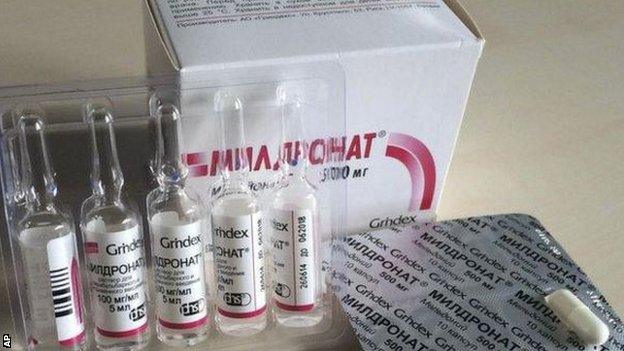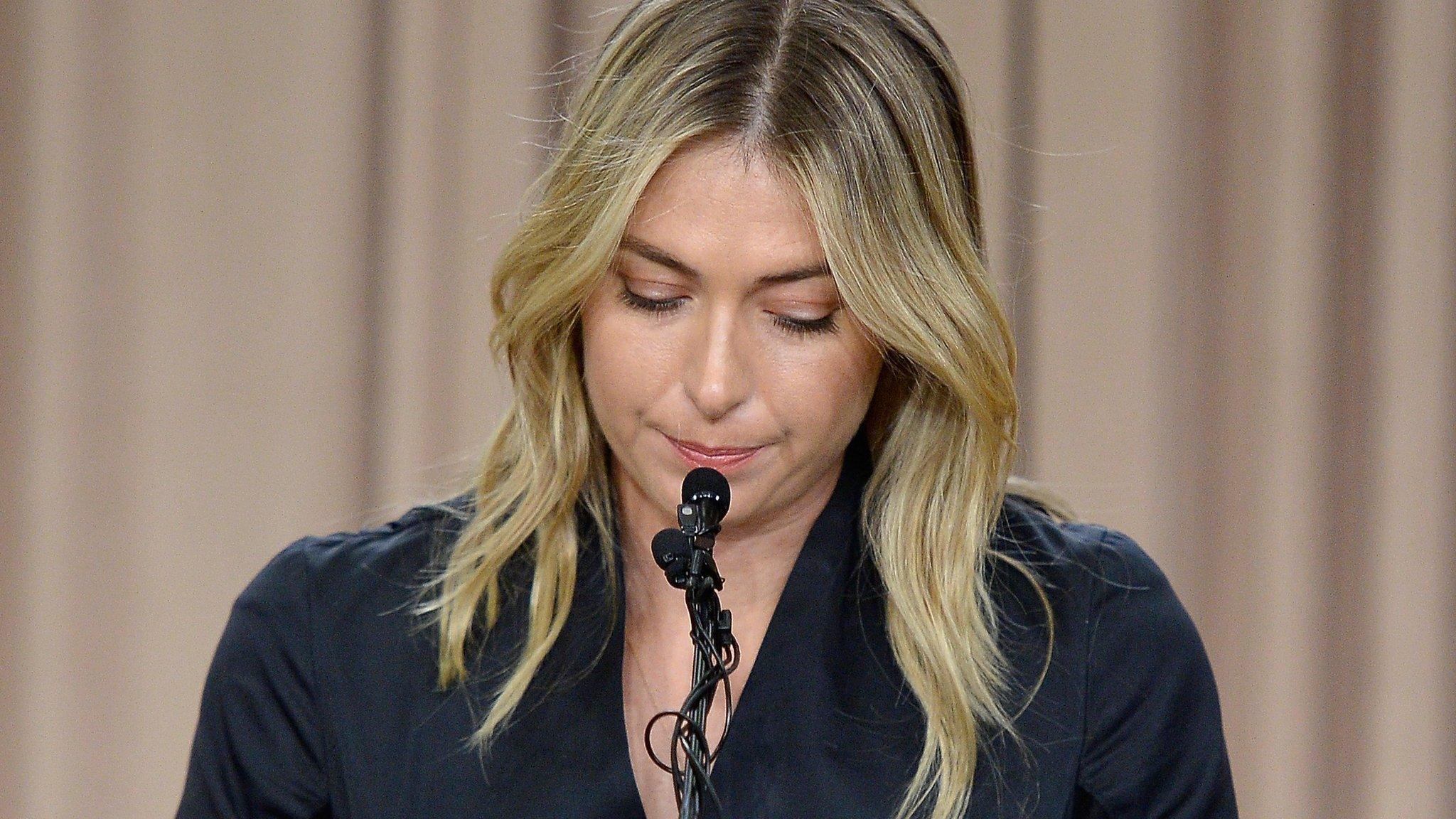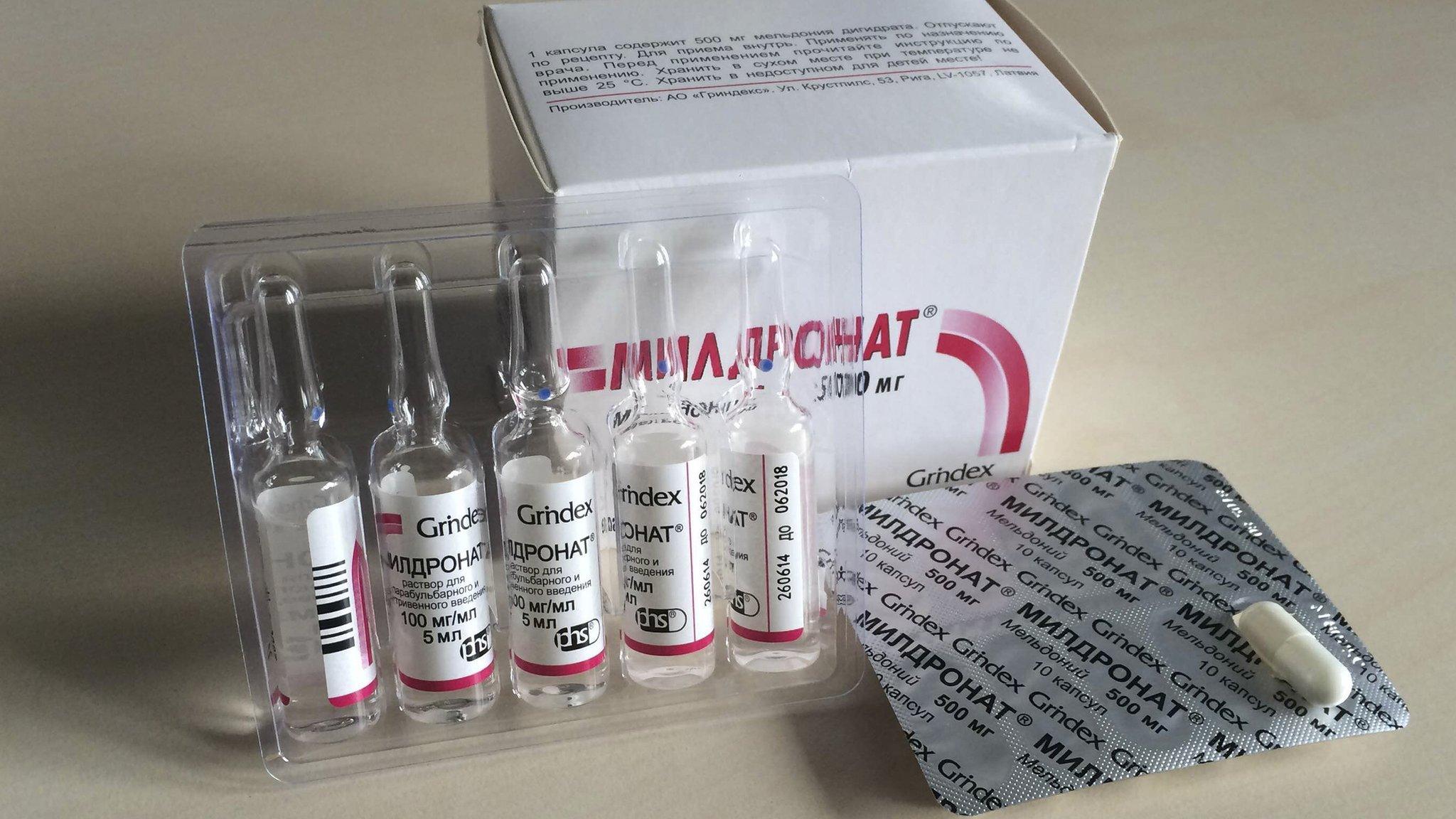Meldonium: Hundreds may have taken drug at Baku European Games
- Published

It is thought meldonium could have a positive effect on stamina and endurance
Up to 490 athletes may have been taking meldonium during the 2015 European Games in Baku, a study has revealed.
The drug was banned by the World Anti-Doping Agency on 1 January and athletes have already tested positive for it, including tennis star Maria Sharapova.
Research published in the British Journal of Sports Medicine found 13 Baku medallists were found to have been taking meldonium.
The drug was detected in athletes competing in 15 of the 21 sports.
The findings were based on information volunteered by both athletes and medical teams, as well as tests given at the competition last June.
Read more on Maria Sharapova case | |
|---|---|
The researchers behind the study have admitted that the 490 figure is likely to be an overestimate because meldonium was only licensed for use in seven of the 21 competing countries at the game.
But the report concludes: "These findings highlight the excessive and inappropriate use and prescribing of this prescription drug in a generally healthy athlete population."
Five-time Grand Slam winner Sharapova, 28, says she has been taking the drug since 2006 for health issues.
Meldonium - also known as mildronate - is designed to treat ischemia, a condition where there is a reduction in blood supply to body tissue. It is also said to have benefits for diabetes sufferers.
- Published8 March 2016

- Published8 March 2016
- Published8 March 2016

- Published8 February 2019
